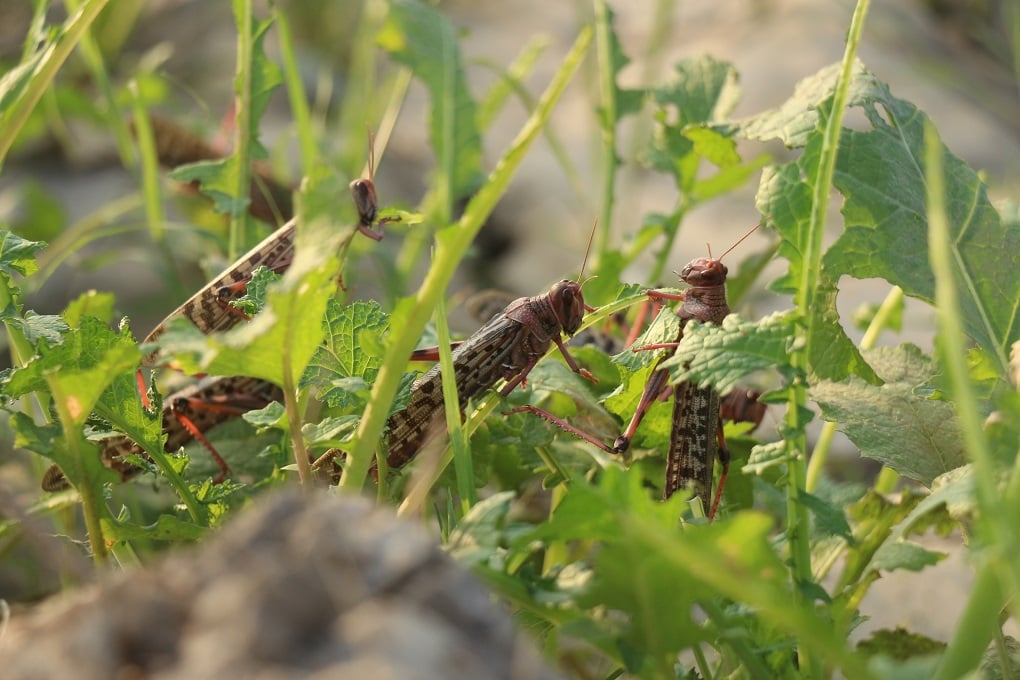By: Samiullah Soomro

Insects hold significant economic importance due to their contributions across various sectors. They are essential for pollination, ensuring the reproduction of plants and crops that form the foundation of agriculture. Additionally, they provide natural pest control services, reducing the need for chemical pesticides and enhancing crop quality. Insects also generate income and employment through industries like apiculture and sericulture. Their role in waste management and nutrient recycling promotes healthy soil conditions and agricultural productivity. Furthermore, insects have commercial value in pharmaceuticals and biotechnology, with compounds derived from them offering potential applications in medicine and industrial processes. Recognizing and preserving the economic significance of insects is crucial for sustainable development, food security, and overall global well-being. Climate change is a rapidly growing concern, and its effects are being felt around the world in a variety of ways. One area that is particularly affected by climate change is the world of insects. Insects, which make up a large portion of the world’s biodiversity, are facing a number of challenges as the climate changes. In this article, we will explore how climate change is affecting insects and their habitats, and what can be done to mitigate these effects.
One of the primary ways that climate change is affecting insects is through changes in temperature and precipitation patterns. Warmer temperatures and more frequent droughts can create conditions that are unfavorable for many insects, leading to declines in their populations. Additionally, changes in precipitation patterns can also have a negative impact on insects, as they can lead to changes in the availability of food and water. These changes can make it difficult for insects to survive and reproduce, leading to declines in their populations.
Another way that climate change is affecting insects is through changes in land use. As human populations continue to grow, more and more land is being converted from natural habitats to agricultural or urban areas. This can lead to the destruction of habitats that are used by many insects, such as wetlands, forests, and grasslands. Additionally, changes in land use can also lead to more monoculture crops being grown, which can provide less diversity of resources for insects.
In order to mitigate the impact of climate change on insects and their habitats, there are several steps that can be taken. One of the most important is to monitor and predict the effects of climate change on insects, so that they can be better understood and managed. This can be done through the use of remote sensing technologies, such as satellite imagery, as well as through ground-based monitoring and sampling. Additionally, it is important to develop and implement conservation measures, such as protected areas and habitat restoration projects, to protect the habitats of insects and other biodiversity.
Another important step is to improve the resilience of ecosystems to climate change. This can be done through the use of agroforestry and other land use practices that can provide habitats for insects and other biodiversity. Additionally, it is also important to promote sustainable land use practices, such as reducing deforestation and promoting reforestation, which can help to reduce the impact of climate change on insects and their habitats.
In conclusion, climate change is affecting insects and their habitats in a number of ways. These changes can lead to declines in insect populations and the destruction of their habitats. To mitigate these effects, it is important to monitor and predict the effects of climate change on insects, as well as to develop and implement conservation measures and improve the resilience of ecosystems to climate change. Additionally, it is important to promote sustainable land use practices that can help to reduce the impact of climate change on insects and their habitats.
The writer is affiliated with the Department of Zoology, University of Sindh, Jamshoro. He can be reached at [email protected]
